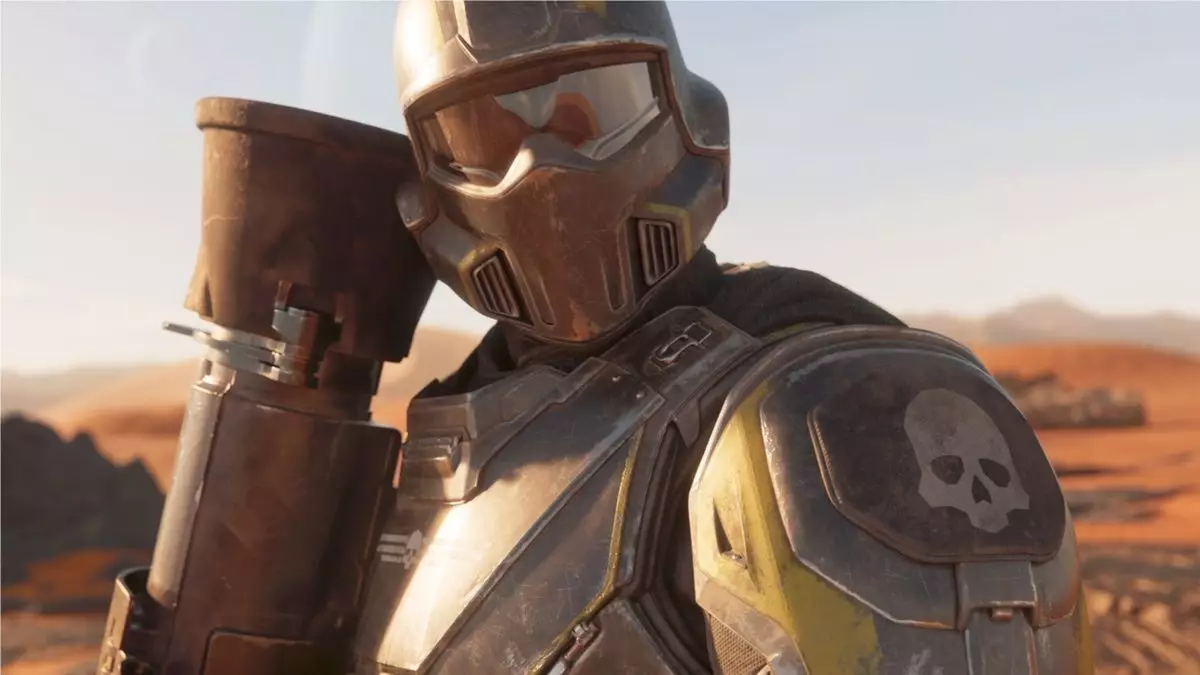The announcement of a Helldivers 2 film adaptation has sparked excitement among fans of the popular video game. As the project moves forward, the involvement of the original game’s developers, Arrowhead Game Studios, has been a point of discussion. The creative director, Johan Pilestedt, recently addressed concerns from the gaming community regarding their role in ensuring the film remains true to its source material. His responses, while revealing some information, left many questions unanswered, opening up a broader conversation about the intersection of video games and film.
During a recent interaction on Twitter, Pilestedt acknowledged a loyal fan’s inquiry regarding the team’s involvement in the film’s production. His somewhat cryptic answer—“The short answer is yes. The long answer is that we’ll see”—gives a glimpse into the potential collaboration but lacks clarity on the extent of Arrowhead’s creative control. This remark suggests that while the team might contribute insights or guidance, they may not have the final authority over the film’s direction, a concern that resonates with many die-hard fans who fear the adaptation may stray from what made the game engaging.
This situation surfaces a significant dilemma: the balance between corporate interests and creative integrity. While the developers strive to maintain the essence of Helldivers 2, the realities of Hollywood production often come with a different set of priorities. Pilestedt candidly states, “We are not Hollywood people, and we don’t know what it takes to make a movie,” reflecting a humble acknowledgment of their limitations. This honesty provides a refreshing perspective but simultaneously raises concerns about potential deviations that could disappoint fans yearning for fidelity to the gaming franchise.
With Sony Pictures and Sony Productions backing the project, the partnership could offer substantial resources, yet it emphasizes a corporate framework that might prioritize profitability over narrative authenticity. The involvement of established film industry standards can be a double-edged sword; it can lead to high production values, but it may also dilute the unique charm that attracted fans to the original game. This question of alignment between the video game creative team and the film executives underscores a recurring theme in adaptations where source material often faces the challenge of reinterpretation for a broader audience.
As the film’s details remain scarce—with no plot, cast, or release date information—the anticipation builds, yet so does the uncertainty. Fans hope for a unique blend that does justice to what they cherish about Helldivers 2 while appealing to a wider cinematic audience. The future seems bright yet blurred in its specifics; as more information surfaces, stakeholders must navigate the complexities of this adaptation. How Arrowhead will influence the film, and to what extent they can safeguard their creative vision, remains to be seen, leaving audiences both hopeful and anxious about the outcome.
While the Helldivers 2 film holds promise, the journey from game to screen is fraught with challenges and opportunities that will determine its success and reception in the gaming community and beyond.

